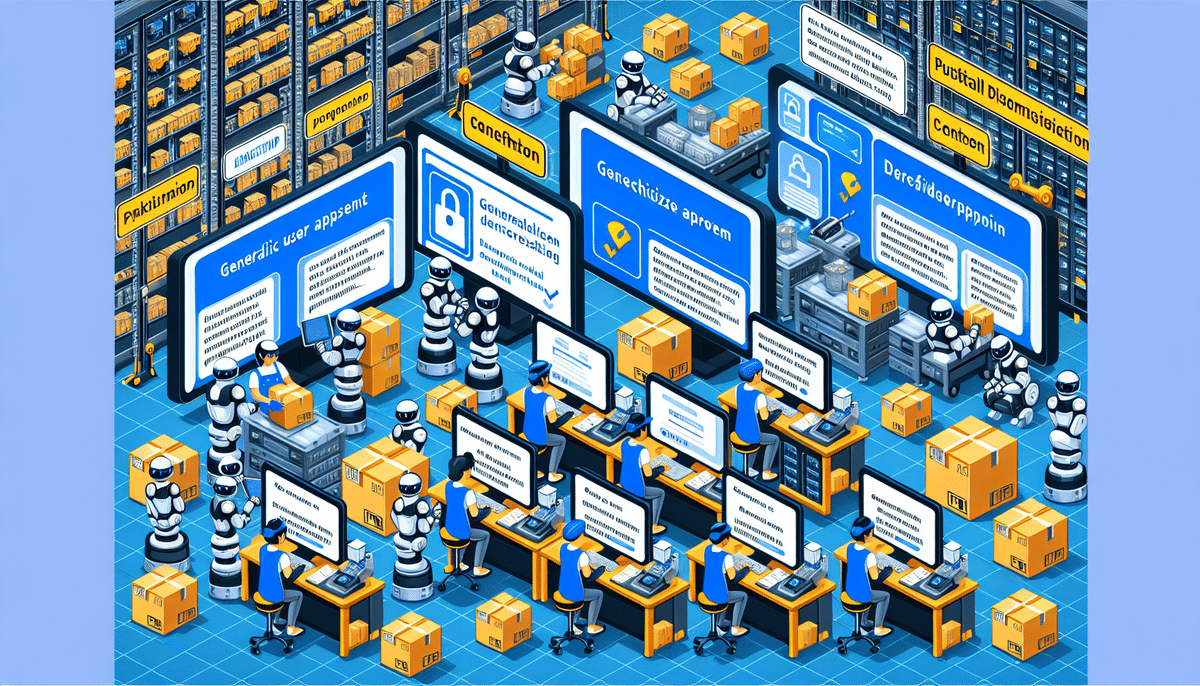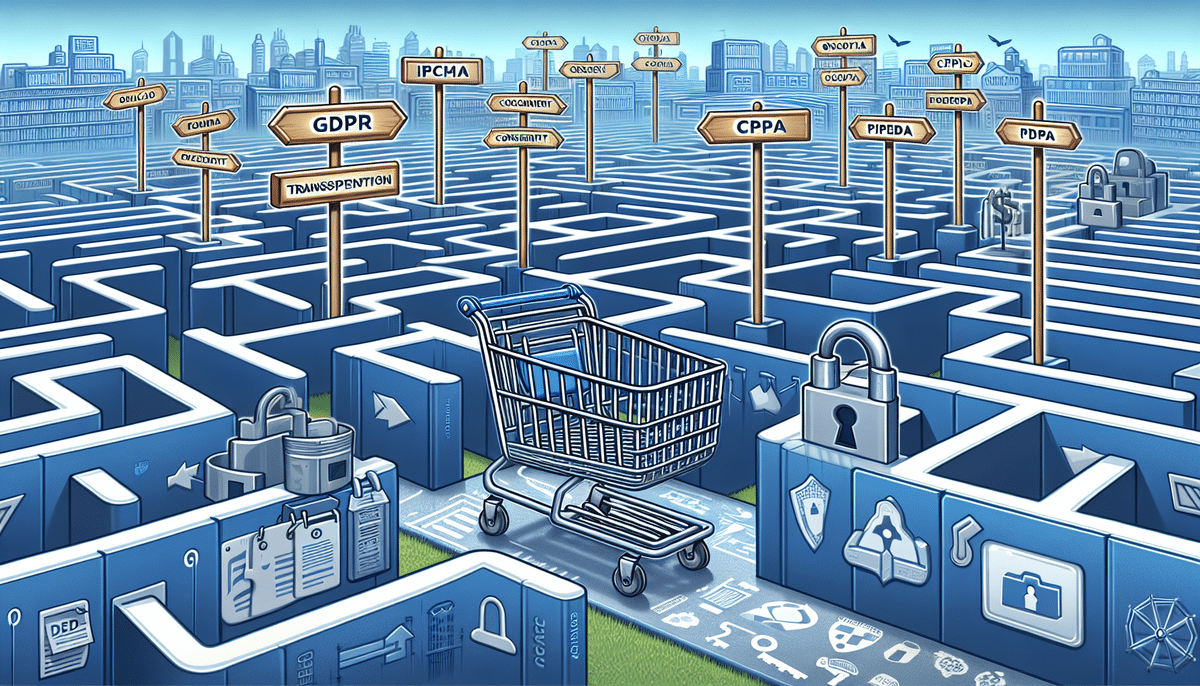Understanding the Impact of GDPR on E-Commerce Logistics
The General Data Protection Regulation (GDPR) remains a pivotal compliance requirement for e-commerce logistics companies. Enacted by the European Union in May 2018, GDPR establishes stringent rules for the collection, use, and management of personal data. This regulation is fundamental in ensuring data privacy and security for all customers interacting with e-commerce businesses. This article explores the impact of GDPR on e-commerce logistics and provides strategies for logistics companies to ensure compliance.
What is GDPR and Its Effect on E-Commerce Logistics
GDPR replaced the European Union's Data Protection Directive in 2018, aiming to protect the privacy of personal data belonging to individuals within the EU. It regulates how companies collect, store, and utilize this data. For e-commerce logistics companies, GDPR impacts the handling of personal data such as customers' names, addresses, and payment details. Compliance requires that this data is collected lawfully, fairly, and transparently, and that it is not used beyond the purposes initially authorized by the customer. Non-compliance can result in severe penalties and significant reputational damage.
One of the key requirements of GDPR is obtaining explicit consent from customers before collecting and processing their personal data. This necessitates clear communication about why data is needed, how it will be used, and the duration of its storage. Customers are also granted rights to access, correct, and delete their personal data at any time.
Furthermore, GDPR mandates that e-commerce logistics companies implement robust security measures to protect personal data from unauthorized access, theft, or loss. These measures include data encryption, access controls, and regular security audits. Failure to implement adequate security can lead to hefty fines and loss of customer trust.
Compliance with GDPR: Essential Steps for E-Commerce Logistics
To achieve GDPR compliance, e-commerce logistics companies must adhere to the following principles:
- Lawful and Transparent Data Processing: Collect and process personal data transparently and lawfully. Inform customers about the purpose of data collection and obtain explicit consent for its use.
- Data Security: Implement appropriate data security measures to protect personal data from unauthorized access or loss.
- Customer Rights: Enable customers to exercise their GDPR rights, such as the right to access, rectify, and delete their data, and provide an easy process for such requests.
Additionally, appointing a Data Protection Officer (DPO) is essential. The DPO ensures compliance with GDPR, possesses expertise in data protection laws, and remains accessible to customers with data-related concerns.
Conducting regular audits of data processing activities is another critical step. These audits help identify potential risks to personal data and provide recommendations to mitigate such risks.
The Role of Technology in GDPR Compliance for E-Commerce Logistics
Technological advancements play a crucial role in meeting GDPR compliance requirements for e-commerce logistics businesses. Technology assists in managing customer data efficiently, automating compliance processes, and ensuring secure data storage and processing. Solutions such as Customer Relationship Management (CRM) systems, document management systems, data privacy management software, and data masking technology are essential.
Moreover, leveraging artificial intelligence (AI) and machine learning (ML) can enhance GDPR compliance. AI and ML can detect potential data breaches, identify anomalies in data processing, and provide real-time alerts to prevent non-compliance. These technologies also aid in automating data subject access requests, a core GDPR requirement. By utilizing AI and ML, e-commerce logistics businesses can not only achieve GDPR compliance but also bolster their overall data security and privacy measures.
Best Practices for Ensuring Data Privacy in E-Commerce Logistics
Implementing best practices is vital for GDPR compliance in logistics companies. These include:
- Conducting regular risk assessments to identify and mitigate risks to sensitive customer data.
- Training all employees on GDPR principles and best practices, particularly those handling sensitive data.
- Implementing data protection measures such as encryption, access controls, and data backup.
Establishing a clear and transparent privacy policy is also crucial. This policy should detail how customer data is collected, used, and protected, and outline customer rights under GDPR. It should be easily accessible and regularly updated to reflect any changes in data processing practices.
Consequences of Non-Compliance with GDPR for E-Commerce Logistics
Non-compliance with GDPR can have severe consequences for e-commerce logistics companies. Penalties can reach up to four percent of a company's total worldwide revenue or €20 million (whichever is greater) as stipulated by the GDPR official guidelines. These fines, alongside legal proceedings, can tarnish a company's reputation and hinder its growth.
Beyond financial penalties, non-compliance can erode customer trust and loyalty. As customers become more aware of their data privacy rights, they are likely to choose companies that prioritize data protection. E-commerce logistics companies failing to comply with GDPR risk losing customers to competitors who uphold data privacy standards.
Operational disruptions and increased costs are additional repercussions of non-compliance. Companies may need to invest in new technologies and processes to achieve compliance, resulting in time-consuming and costly transitions. Legal fees and related expenses from non-compliance add to the financial burden, impacting the company's overall profitability.
The Future Outlook of E-Commerce Logistics Post-GDPR Implementation
The implementation of GDPR has significantly improved data privacy, security, and transparency for customers interacting with e-commerce logistics companies. Future enhancements may include more streamlined methods for data collection, management, and processing, enhancing user experience while ensuring GDPR compliance. According to a report by Deloitte, the focus on data protection is expected to grow, with advancements in AI and blockchain technologies further securing personal data.
The continued emphasis on GDPR compliance presents an opportunity for logistics companies to refine their operations, management practices, and customer relationship management. By prioritizing data privacy and security, companies can gain a competitive edge, fostering trust and loyalty among customers in an increasingly data-conscious marketplace.
Comparative Analysis: GDPR's Impact Across Logistics Sectors
GDPR affects all sectors of the logistics industry that process customer data, including transportation, warehousing, and distribution. While the regulatory impact varies based on the services provided, it is imperative for all logistics companies to comply with GDPR. Compliance safeguards the business’s reputation and reinforces customer trust across all logistics sectors.
A study by Statista highlights that sectors with higher data handling processes, such as warehousing and distribution, face more significant challenges in GDPR compliance due to the volume and sensitivity of data managed. These sectors must invest more in data protection technologies and staff training to meet GDPR standards effectively.
Impact of GDPR on E-Commerce Business Profitability and Growth
While GDPR compliance may initially impact the profitability and growth potential of e-commerce businesses due to the costs associated with implementing necessary measures, the long-term benefits are substantial. Enhanced privacy practices lead to improved data security and increased customer trust, which contribute to better customer retention and, ultimately, greater profitability.
According to a report by PwC, companies that effectively navigate GDPR compliance can leverage it as a competitive advantage, differentiating themselves in the market by prioritizing data protection. This differentiation can attract customers who value privacy, driving growth in a competitive e-commerce landscape.






















